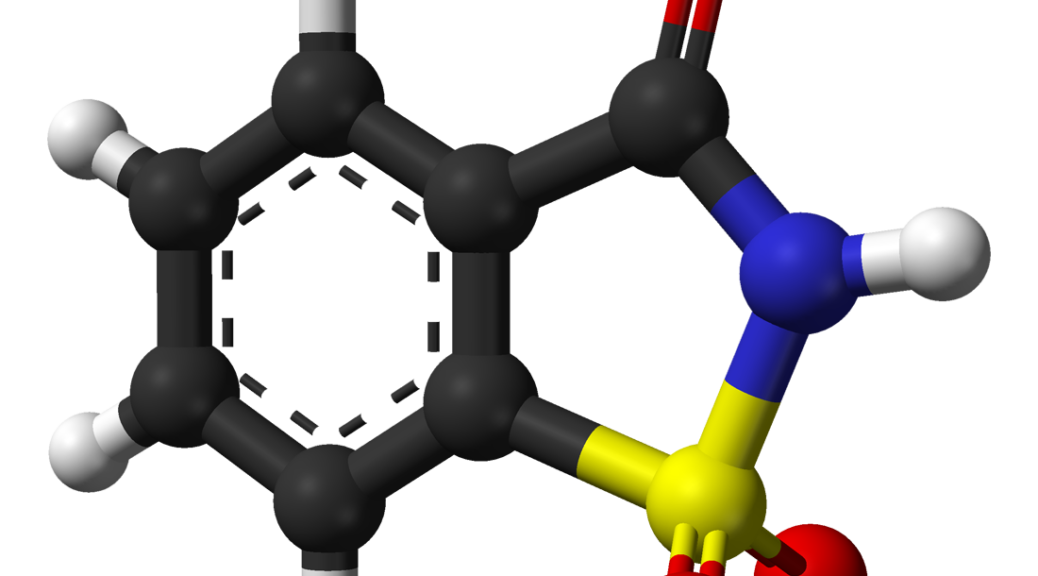
Merry Blogmas for December 7: Saccharin and Cancer
We continue today with our daily “Merry Blogmas” posts on fun bite-sized science topics, which will run until Christmas.
SACCHARIN IS NOT A KNOWN, PROBABLY, OR POSSIBLE CARCINOGEN
If you pay attention to the news, that statement shouldn’t come as a shock. Unfortunately, because of the great saccharin scare of the 1970s, there are still people who think that saccharin causes cancer.
Here’s how saccharin got its bad rep:
- There were some studies done in the 1970s where male laboratory rats who were fed large amounts of saccharin got bladder cancer.
- At the time, many diet foods and diet sodas used saccharin as a sweetener.
- The news media loves stories like this and ran with it, causing a wide-spread reaction against saccharin.
Because the studies were based on rats and not people, saccharin was labeled as a probable carcinogen.
- It was labeled as a suspected carcinogen and not a known one. The number of actual known carcinogens is rather small because there has to be a firm tie between cancer and humans. There are only slightly more than a hundred known carcinogens.
- The US Food and Drug Administration is required by law to act on issuing bans and warnings on any substances that can be linked to causing cancer either in humans or in laboratory animal studies.
Saccharin Research in the 1990s
Two different research results from further studies of saccharin appeared in the 1990s:
- It was found that saccharin did not cause cancer in animal studies done on primates other than humans.
- It was determined that biochemistry unique to rats was the reason they got cancer when fed large amounts of saccharin. The same biochemical pathways do not exist in other mammals.
Saccharin Reclassified
Starting in 2000, numerous governmental agencies worldwide has reversed their warnings and bans on saccharin. Even the State of California took saccharin off its notoriously politicized and panic-driven “Proposition 65” list of “chemicals known to the State of California to cause cancer and birth defects or other reproductive harm.” As someone who used to work in the environmental science business in California, for saccharin to be removed from the Prop 65 list is a big fat hairy deal.
Even though science has revised its findings on saccharin and cancer through further research, it’s not the sort of sensational news that makes headlines. The revision of the verdict on saccharin has hardly been noticed. In a quick check around the internet this morning, I found several sites which still report that saccharin is a carcinogen.
I was a freshman in college when saccharin was still making headlines as a suspected carcinogen. There was a article on saccharin in one of the New York City newspapers that I have never forgotten. In this article, a cancer researcher at Columbia Presbyterian Hospital made a statement that burned itself in my brain and has remained glowing there ever since. It went something like this:
“Anything in sufficiently large enough quantities will cause cancer in laboratory rats.”
Banner graphic of a saccharin molecule by Ben Mills, 2009, in the public domain via WikiCommons.
